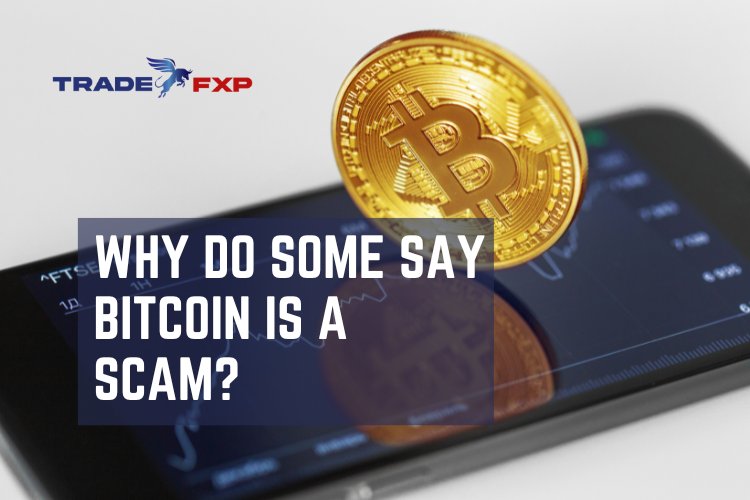Why do some say bitcoin is a scam?
Delve into this insightful blog addressing the controversies around Bitcoin, as it explores skeptic perspectives, alleged scams, and the reality of crypto.

Why do some say bitcoin is a scam?
Bitcoin is an unprecedented pump-and-dump scheme. Considering Bitcoin's pump-and-dump nature, it is in my opinion a scam. An artificial price is driven up and then some of the promoter's holdings are sold, ending the frenzy. 10% of ICO funds have been stolen, according to Ernst & Young.
Internet promoters end up transferring wealth from ordinary families to them, which is a major overstatement. Spin game losers are ill-informed buyers. There are currently over 1,500 cryptocurrencies that trade for $300 billion in value. In contrast, Bitcoin has no value.
Despite what cryptocurrency promoters claim, cryptocurrencies are worthless as payment systems, stores of value, or as things in themselves. Even where accepted, currencies with a value fluctuating by 10 percent are ineffective as money.
Because Bitcoin's price fluctuates so much, it is difficult to store value with it. Unlike ordinary banks and brokers, cryptocurrencies are stored in cryptocurrencies - or cryptocurrency exchanges or online wallets - which are much less reliable and trustworthy. It only has value if other people think it will be worth more in the future, based on the Greater Fool theory.
Bitcoin, like Sweatcoin, has little currency use today. Euros, pounds, yens, and renminbi are all better means of payment and currency than bitcoin at this point.
Almost all heavy users of bitcoin are criminals because bitcoin is virtually anonymous and is used primarily in criminal activities like Silk Road and WannaCry ransomware. Cryptocurrency exchanges such as NiceHash and Coincheck, as well as Mt. Gox and Bitfunder, have been victims of heists. There have already been 418 successful initial coin offerings out of 902 ICOs in 2017.
By taking control of other people's computers and forcing them to mine coins, over 90 percent of remote hacking is focused on bitcoin theft. To comply with tax law, most bitcoin sellers don't keep records of their capital surpluses or losses. A major exchange has been ordered to provide records of all significant transactions, according to an enthusiast of bitcoin. Bitcoin has strength as evidenced by the criminal activity on the Silk Road.
While bitcoin is often marketed as a safe and instant way to pay, the bitcoin system can only process five transactions per second and it takes about an hour for a transaction to be confirmed. A $100 transfer can cost about $6 when using a crypto exchange, or less than $1 if you use an electronic check. The process of creating cryptocurrencies (known as "mining") consumes as much energy as it would take for an average American household to be powered for two years.
In the event of a large number of bitcoin transactions, the world's electricity supply will be greatly stressed. There is not enough power to do anything else with it. It does not make sense that someone can just issue electronic scrip and create billions of dollars worth of value.
Amid the wild stories about cryptocurrency, it is easy to become desensitized. People have invested a lot of their life savings in an industry that has not yet been fully regulated. As things continue to get disturbing, one stock brokerage is encouraging their customers to invest in bitcoin for their retirement accounts! The SEC and other regulators should step in to protect these unsuspecting investors from misleading schemes due to cybersecurity threats and data breaches.
Legislative authority is needed for them to do their jobs.



 admin
admin 










